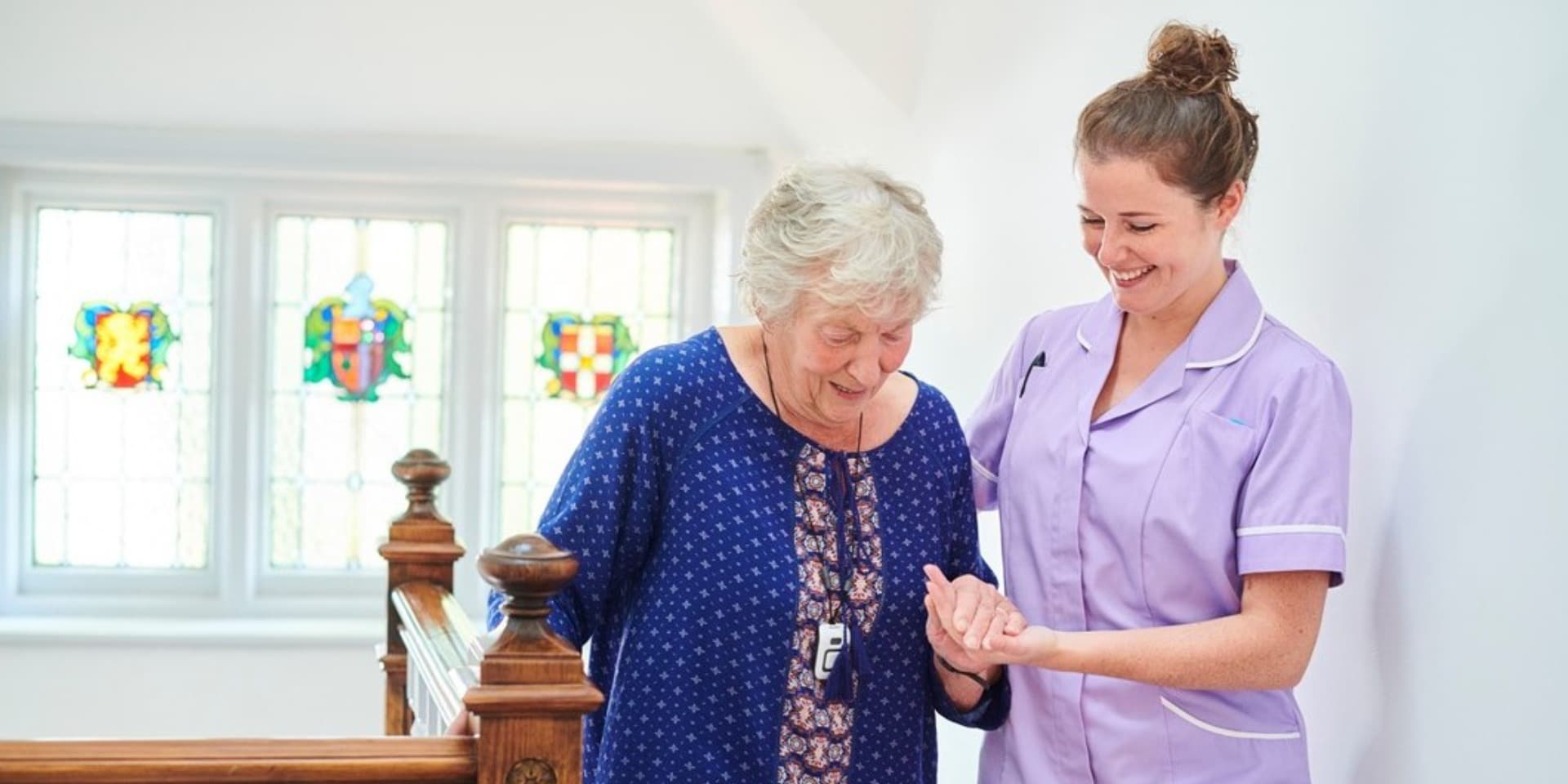When should palliative care be offered?
Who is palliative care suitable for?
Palliative care is for when someone has a life-limiting condition or chronic illness.
Palliative care should be considered when someone with a progressive or life-limiting illness needs help managing symptoms and improving quality of life. It can be introduced early, even alongside other treatments, to provide comfort and support throughout the illness.
Palliative care can begin at any point during a person’s diagnosis and will sometimes result in end-of-life or hospice care. Although some people may choose to receive end-of-life care at home instead of going into a hospice, care at home can often be supported by the expertise of a hospice.


What to consider when choosing palliative care
There will always be personal factors to take into account when deciding whether moving to palliative care is the right step for someone in their care journey. Initially, there may be a discussion with your healthcare team regarding the care that you may need to help you to manage your condition and live life the way you want to. Points to discuss may include:
Your condition and the available treatments
Although you may not be given a specific prognosis for how long you will have your condition, it’s important to find out the type of symptoms you will expect to have and the treatment options available, so that you can make informed decisions that are right for you. Then palliative care can then be put in place to help you manage with the treatment and day-to-day activities.
Your wishes and expectations
You may find that the side effects of your treatment are too difficult to manage and in fact, you’d prefer to stop treatment all together. Or you may decide to start treatment after initially managing your condition without medication. We tailor our palliative care around the individual and their preferences, so that you receive person-centred support to suit your needs.
Amazing carers, delivering quality care.
We are committed to looking after our carers as well as our customers. Being a carer is more than just a job.

Common misconceptions about palliative care
Palliative care is often grouped with similar terms like ‘hospice care’ and ‘end-of-life care’.
In reality, all three are different; “palliative care” is a term that also encompasses end-of-life and hospice care. Palliative care can be appropriate for anyone who has been diagnosed with a terminal, progressive or serious medical condition, and can be received for a number of years.
End-of-life and hospice care, on the other hand, are reserved for those who are approaching the final weeks and days of life and need their support to place an emphasis on preparing them for a peaceful, dignified death.

Common misconceptions about palliative care include:
“Palliative care means I’ll have to go to a hospice”
You may need to go into a hospice or have hospice care at home if your condition progresses, but having palliative care doesn’t always mean moving into a hospice. You might need palliative care to support with your symptoms and pain management, but you may recover and not progress to hospice care.
“Having palliative care means I’m going to die soon”
You can receive palliative care at any point during your illness – either when you’re diagnosed or begin treatment, or at the later stages of your condition. Some people will receive palliative care for years if they have a long-term health condition, and others may not die whilst receiving palliative care at all.
“I’ll no longer be seen by other specialists”
Palliative care can be given alongside other treatments and therapy that help with your condition. For example, you may receive radiotherapy for cancer, but still receive palliative care to help with pain management and support at home with chores and personal care – or even to help while you’re in hospital.
“Palliative care isn’t for family and friends”
Although palliative care puts the individual at the centre, their friends and family are very much included in the approach to their care. We understand how difficult it can be for those around you to cope with your illness, which is why our carers will always go above and beyond to support them too.


How do I get palliative care?
We know that arranging care can be a daunting process. Our friendly customer team will talk through the different options available to you and make the process quick and easy.
Speak to our team
Call our team of experts to talk through your options and any questions you may have
Free home care assessment
Your local Helping Hands manager will visit you to discuss your care requirements
Find your carer
We’ll help to match you with a carer who meets your preferences and has the right skills
Fully regulated by the CQC / CIW
Here at Helping Hands, our palliative care service is fully managed and regulated by the Care Quality Commission (CQC).
From your very first phone call to our friendly team, every aspect of your home care service is independently monitored and regulated by the CQC and Care Inspectorate Wales (CIW).
Why is being a regulated company important?
What does regulation mean?
Our service is regularly monitored, inspected and regulated by an independent body
Why do we choose to be regulated?
You have peace of mind that your care is approved by social care’s regulating body
How does regulation affect my care?
Our regulation means a guarantee that we’ll provide you with high quality care, no matter what
Page reviewed by Kathryn Mahon, Regional Clinical Lead, on July 25, 2024.
How we wrote this page
This page has been produced referencing key insights and data from external experts, trusted medical sources and our team of in-house specialists. We have worked hard to ensure that all information is as accurate as possible and reflects current consensus at the time of writing and reviewing.